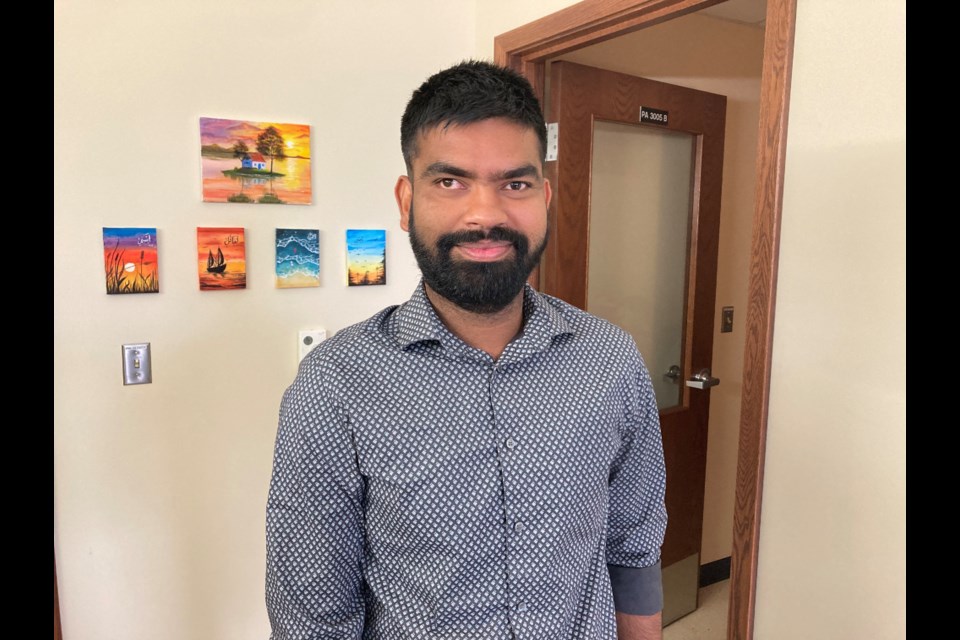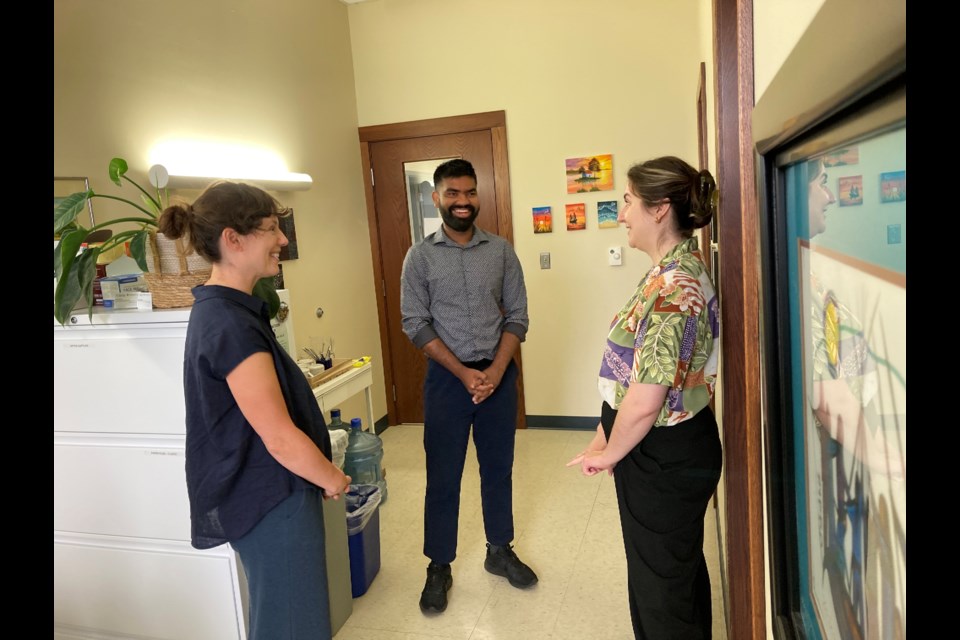THUNDER BAY — A newcomer to Thunder Bay whose quest to avoid deportation attracted significant public attention has scored a key victory, after his application for permanent residence status was approved in principle.
Abu Hena Mostofa Kamal’s efforts to remain in the city had won support from thousands of residents and was held up as an example of deep flaws in Canada’s immigration system.
Kamal, 24, won a last-minute stay against a removal order filed by the Canadian Border Services Agency in late December of last year, but his status had remained in limbo.
Late last week, Kamal learned his application to become a permanent resident had been approved in principle by Canada’s Department of Immigration, Refugees and Citizenship, pending checks.
“Finally, after all those months of being in limbo, it was a big relief,” he said in an interview.
“It was really stressful, especially not knowing what your status is. I wasn't sure where my next meal was coming from, I wasn't sure where I would end up… But I'm really grateful for all the community support — that’s why I can stay here.”
Jennifer Dagsvik, director of the Newcomer Legal Clinic that operates out of the Bora Laskin Faculty of Law at the former PACI building, said while Kamal’s immigration journey isn’t yet over, the approval in principle of his permanent residency status “makes things a lot more straightforward from here on out.”
The clinic, a partnership between Lakehead University and the Thunder Bay Multicultural Association, offers free support in immigration, refugee, and citizenship law to those without the means to hire a lawyer or licensed immigration consultant.
The clinic reports supporting around 350 people since launching in late 2021. It receives funding through the Law Foundation of Ontario and The Neighourhood Organization.
Kamal called the organization crucial to his ability to remain in Thunder Bay.
“I would say everyone deserves legal [representation], being able to fight their legal battle,” he said.
“I don't think there's any way I’d be able to fight this legal battle…. and get through this complicated legal process by myself. There's no way that it would be possible without the support from the legal clinic and Jennifer.”
Charlotte Bueckert-Dyck, a Lakehead law student who returned to work at the clinic for a second summer this year and put in significant time on Kamal’s case, agreed the clinic is crucial for many newcomers, but added that’s also a sign of the limited supports they’re able to access elsewhere.
“It's hard to imagine that people living with precarious immigration status are here in this community, but they are,” she said. “This clinic is really important for helping members of the community that are often overlooked, people living in poverty who are also dealing with precarious status.”
“Without clinics like these, these people are kind of stranded, and I think that's really unfortunate.”
Kamal came to the city from Bangladesh at 19 to study at Lakehead University, but ran into problems financing his education during the pandemic, first switching to study at Confederation College, then taking a break from his studies.
That led the CBSA to seek to deport him after his study permit expired in 2021.
Kamal had applied to a special pandemic-era program known as the temporary resident to permanent resident — or TR to PR — pathway, open to foreigners who performed essential frontline work during the pandemic.
He had not received a response after well over 18 months, in which time his immigration status lapsed, leading to the CBSA’s removal order.
That played into the decision granting Kamal a stay on the removal order, which took into consideration chronic delays within Canada’s immigration system.
“There are serious issues as to whether Mr. Kamal’s applications have been handled [promptly and accurately],” federal court Justice Sébastien Grammond wrote in that decision.
While some factors made Kamal’s case unique, Dagsvik said the issues it raised are all too common.
“[Something] that is typical of Abu’s situation is that he only lost the opportunity to qualify for that program when he fell out of status because of really complicated immigration procedures and decision-making, and then long wait times to try to get things resolved.”
Dagsvik said anecdotally, wait times have been improving since the depth of the pandemic in many cases, but still often remain sluggish.
Those applying for work permits, for example, continue to face processing times of well over 100 days, she said.
In legal filings, Kamal had raised concerns he would face greater discrimination over his visual disability if he were to return to Bangladesh, and that he could be targeted for violence due to a family land dispute.
Kamal’s case generated significant public interest in Thunder Bay and beyond, with an online petition gathering nearly 3,000 signatures and prominent community members submitting letters of support that cited his remarkable volunteer involvement.
That involvement included shovelling snow for seniors in the city, which helped inspire Age Friendly Thunder Bay’s Snow Angels program, and his work at local shelters and other organizations.
“I've never seen so many community support letters come in for somebody,” said Dagsvik. “We put all of that information in, and I think that's compelling to immigration decision makers who are exercising discretion.”
Kamal had also earned recognition for launching a culinary venture called Outsiders with friends.
With his future in Thunder Bay looking more secure, that business is preparing to re-launch in partnership with The Social after being put on hold, he said.
Kamal is excited to embrace that opportunity, saying it will also offer a chance to give back to a community he said had provided him extraordinary support.





